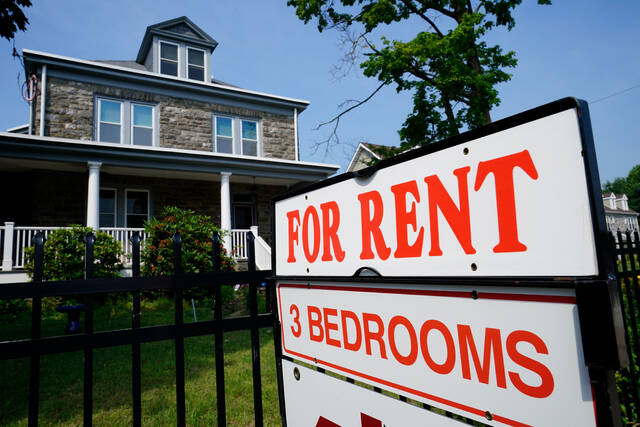https://triblive.com/opinion/editorial-will-hotter-housing-market-help-renters/
Editorial: Will hotter housing market help renters?

Real estate experts are hoping to see an uptick in the housing market in 2024. Not a boom, but more of a bump.
The region’s home sales were down in 2023. According to Dennis A. Cestra Jr., president of Howard Hanna Real Estate Services in Pennsylvania, West Virginia and Maryland, the decline was considerable — about 13.5%. In Western Pennsylvania, that meant a drop of about 3,600 sales from 2022.
Why? It wasn’t the cost of the houses themselves. It was the cost of the money to buy them. Very few people plunk down the $100,000 or more that it takes to buy a house. They pay a deposit and finance the rest with a mortgage. That money comes with its own cost though — the interest rate that affects the monthly payment.
Online real estate website Zillow puts the average cost of a Pittsburgh-area home at about $219,000, up 3.8% over the previous year. Assume a 10% deposit — and that’s lower than the state average of 13.8%. That’s still a mortgage of $198,000.
In 2021, the average rate for a 30-year mortgage was an all-time low of 2.65%, which translated to a payment of $798. In December 2023, the average rate was 7.468% — with a payment almost double at $1,380. It’s easy to see why people waited.
That didn’t just change how many houses were sold. It affected the homes that were sold. The average sale price was about 31% higher than the average list price. The market was much more brisk for homes on the higher end.
Interest rates — manipulated by the Federal Reserve repeatedly over the last two years to rein in inflation — are beginning to decline. A drop to 5.5% is predicted by the Mortgage Bankers Association. More reductions by the Fed could spur more sales of existing homes and construction.
That’s great for people who can afford those average homes. It’s great for people who can afford investment properties.
What remains to be seen is how it will affect the rental market and therefore those with lower incomes or less credit. Some Pennsylvania areas — including Pittsburgh and Philadelphia — were ranked by national website RentCafe as among the most competitive rental markets in the country.
Both cities were marked not just by high occupancy rates and short shelf-time for unoccupied units, but by the pronounced lack of new apartments being put on the market. The Pennsylvania Association of Realtors shows rent has increased by 60% or more since 2009.
That can be crippling for families with stagnant income. It can also be an insurmountable hurdle to saving to purchase a home.
As interest rates fall and the housing market picks up, let’s hope developers and investors alike remember there is still money to be made by steadily and fairly serving the rental market.
Copyright ©2026— Trib Total Media, LLC (TribLIVE.com)
